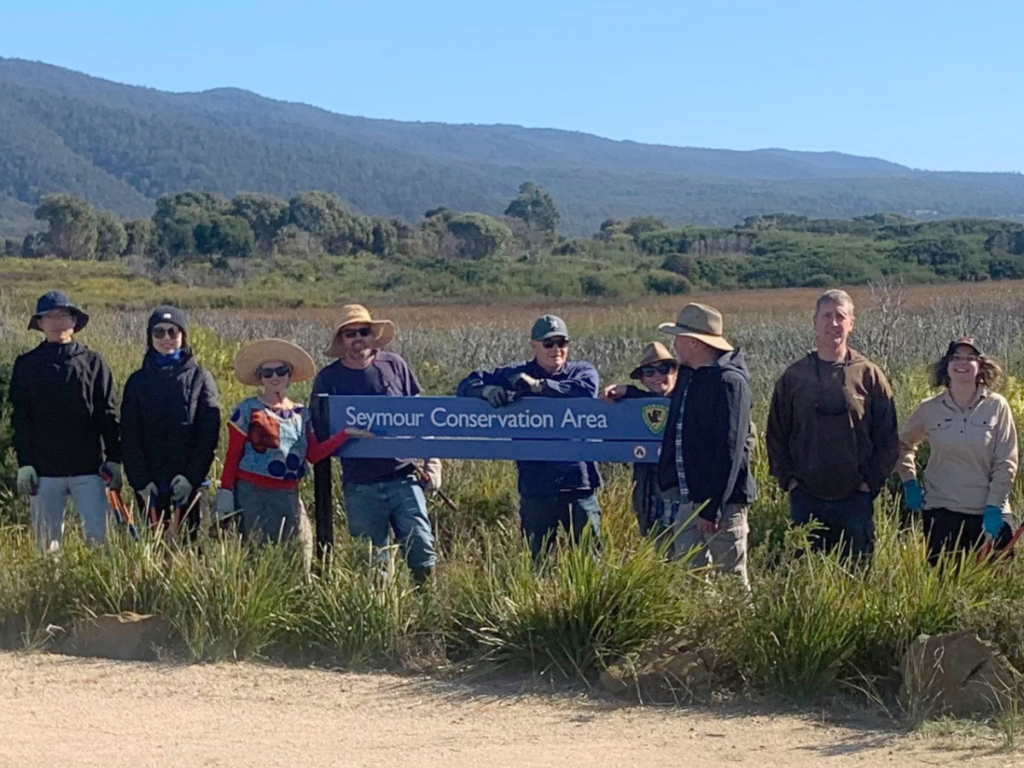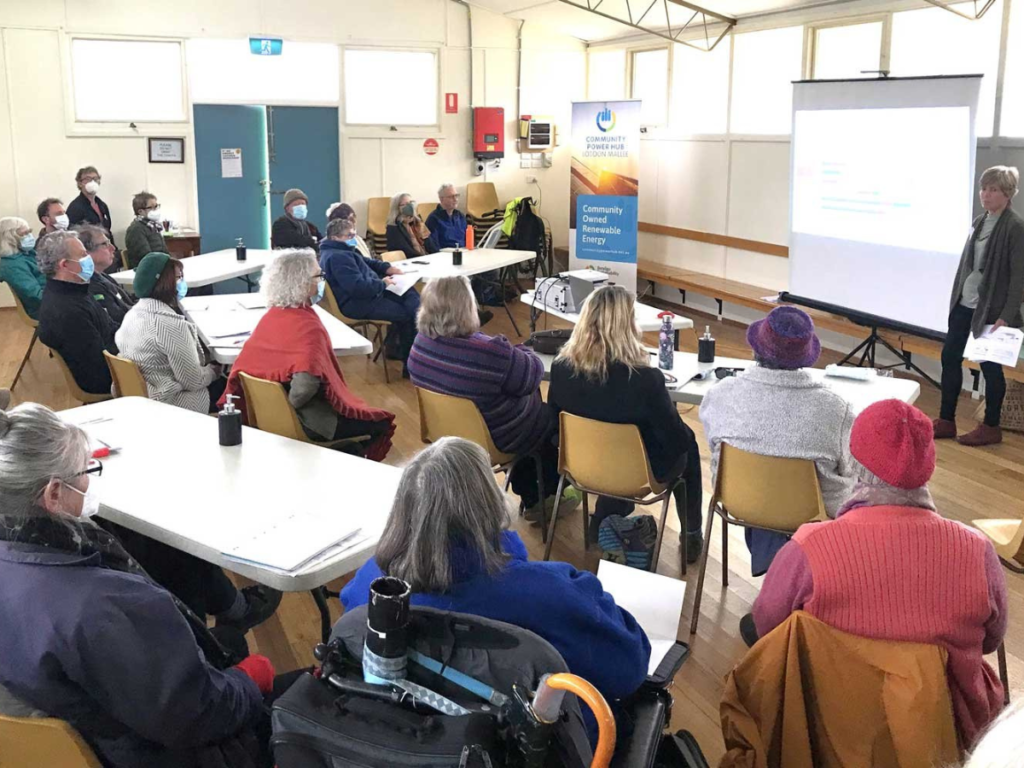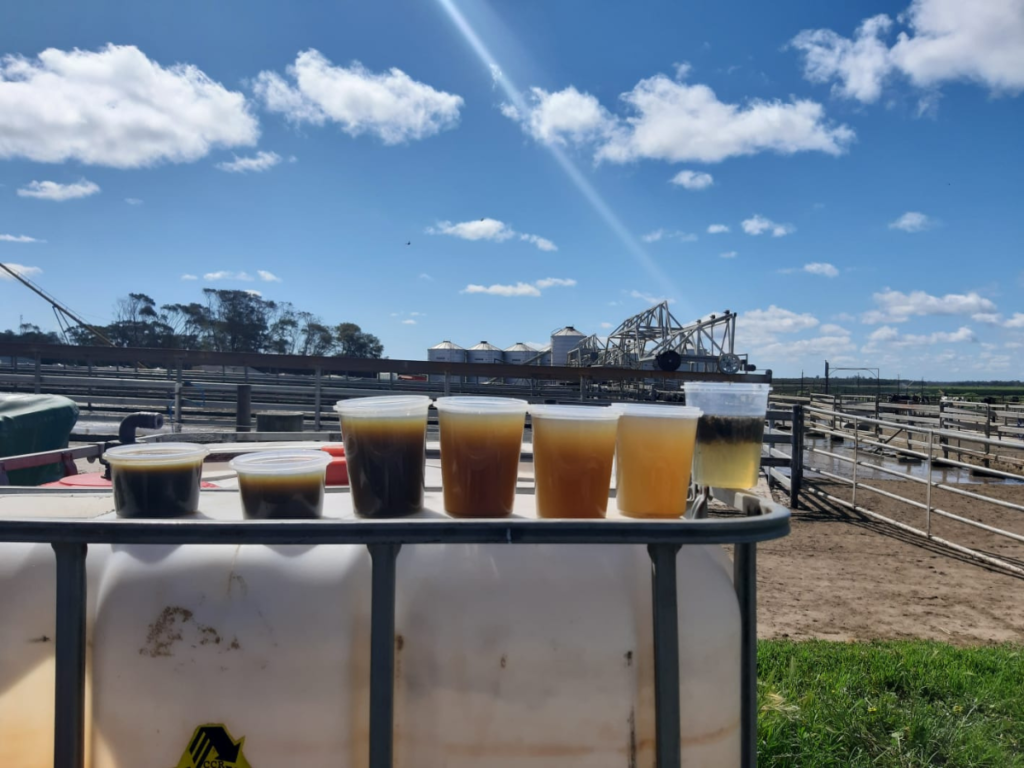Media releases (soft launch): 15 September 2023
It’s no secret that risks presented by our changing climate loom large. The communities FRRR serves are particularly vulnerable to the impacts of increasingly frequent and severe natural disasters and climate extremes. These impacts threaten to exacerbate existing social and economic inequalities, and negatively affect the liveability – and therefore the sustainability – of these communities.
As the Australian Government’s 2022 climate change statement noted:
“Our weather is becoming increasingly variable. More frequent extreme and cascading weather events are impacting our communities and economy, disrupting lives, and threatening our environment. At the same time, summers are becoming steadily hotter and drier, leading to adverse health impacts, increased bushfire risks and ecological damage, and threatening agricultural production. We must anticipate, prepare for and adapt to the impacts from our warming climate. Second, we must mitigate further catastrophic climate change by reducing our own emissions and playing a leadership role in supporting other nations to reduce theirs. Both will require an economic transformation on a scale beyond anything we have experienced in our lifetimes.“
While FRRR has seen an increase in applications we receive that are focused on disaster preparedness efforts, there has been markedly less focus on embracing practices and solutions that reduce the impact of the changing climate or capitalise on opportunities. Often this isn’t for want of great ideas, but rather limited access to funding and capacity to investigate options, particularly for not-for-profit (NFP) groups who want to be proactive and undertake community-led projects.
That’s why, with the support of generous seed funders, we are launching a Community-led Climate Solutions program. We’ve seen time and again that when we can offer dedicated funding around a particular issue – such as In a Good Place (targeting mental health) and Telstra Connected Communities (targeting the digital divide), amazing things happen. All too often it only takes relatively modest funding, backed by volunteers, to bring these projects to life.
So, we intend to offer funding to NFP groups twice a year to help them leverage the incredible knowledge, innovation and commitment in rural areas to implement locally-led climate solutions. The grants will aim to support three key areas:
- Drive engagement, education, and leadership in remote, rural, and regional climate solutions;
- Activate locally-led opportunities to advance energy transition, climate adaptation, decarbonisation and circular economies; and
- Support just transitions to new clean economies for thriving communities.
These different objectives will allow community groups to take action that reflects the most pressing issues in their community, but also recognises that the conversation is unfolding in different ways, and at a different pace in different regions. Some will be ready to take bold action to capitalise on the opportunities from the transformation of our industrial sector, while others will need support to build understanding and drive engagement towards the prospect of a different future. We need initiatives that are designed by each community, that will work for their context.
The grants could potentially fund projects like these, which FRRR has previously supported:

Seymour Community Wetland Restoration & Reclassification Project, TAS
A $10,000 grant was awarded from FRRR (proudly supported by IKEA) to fund weed control and restoration of the Seymour Wetland Reserve (including workshops on Seed Collection, Propagation and Restoration). The work of the volunteers, together with professional support from this funding, resulted in the Reclassification of the project area in June 2022, to double the size of the Seymour Conservation Area, contributing to restoration of native species (over 650 trees have been planted by the group) and decarbonisation. The media exposure from the Reclassification attracted new members and enrolled others in the community to become more active in the Conservation area.

Bendigo Sustainability Group, Regional Community Energy Workshops, VIC
The Bendigo Sustainability Group (BSG) has been operating for 10 years. Over that period, BSG has been involved in the successful delivery of a wide range of projects and programs, creating awareness around sustainable living, renewable energy options, climate change and the need for decarbonisation.
This $10,000 grant funded by FRRR, with the support of the Community Foundation for Central Victoria, has enabled BSG to deliver free, engaging and informative workshops on energy efficiency and renewable energy in small towns throughout the Loddon Mallee region. As a result, they have also been able to identify and support the development of community renewable energy projects to enhance the resilience of these communities.

Augusta Margaret River Clean Community Energy Incorporated, WA
The Dairy Waste Energy Study project was part of Shire of Augusta-Margaret River’s ambitious plan to operate at net zero carbon emissions by 2030. AMRCCE wanted to investigate creating biogas from dairy manure waste, while also diverting effluent from nearby water sources. The project utilised an FRRR grant to partially fund the study, which assessed the Butane Methane Potential contained in dairy waste from a large dairy farm in the Scott River area in the Augusta Margaret River local government area. It was an important precursor to the planning and development of what could be an aggregated biogas and renewable power grid connected facility, and was involved in a PhD study and associated scientific paper.
More than money
In addition to the funding, grantees will have access to FRRR’s capacity building expertise and guidance, to help them shape their projects and, in time, we will also seek to connect these groups to leverage learnings across communities. We’re also keen to connect these organisations with businesses who may be able to provide one-off or ongoing pro-bono support. This program will also focus attention and promote conversations to catalyse additional community-led solutions.
Further, by analysing application data and by tracking impacts, FRRR will be able to generate insights into how communities are activating climate solutions and identify what additional support may be required, or what barriers NFP groups are facing.
Join us?
Thanks to generous seed funders, FRRR is set to launch the program’s first round at the end of October 2023, but we know this program will be in high demand, so we’re looking for additional partners to walk alongside us and enable rural communities to access climate solutions focused funding well into the future.
If this is something you are interested in learning more about, please contact either Sarah Matthee or Jillian Kirwan-Lee via partnerships@frrr.org.au.

